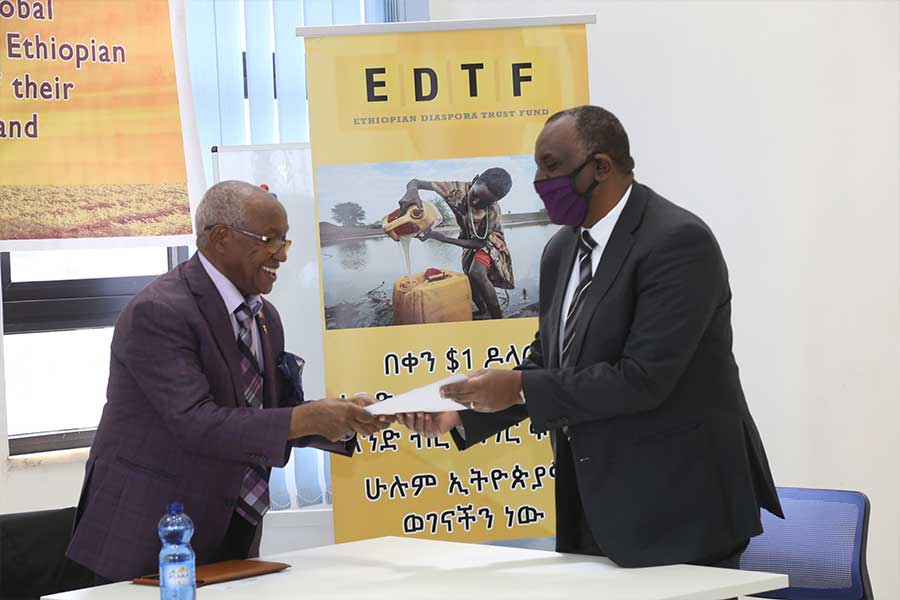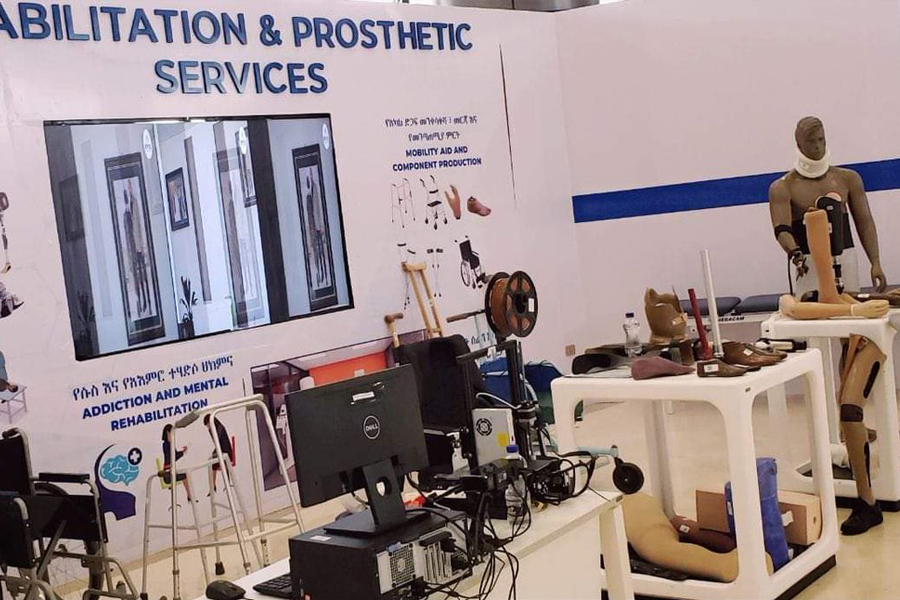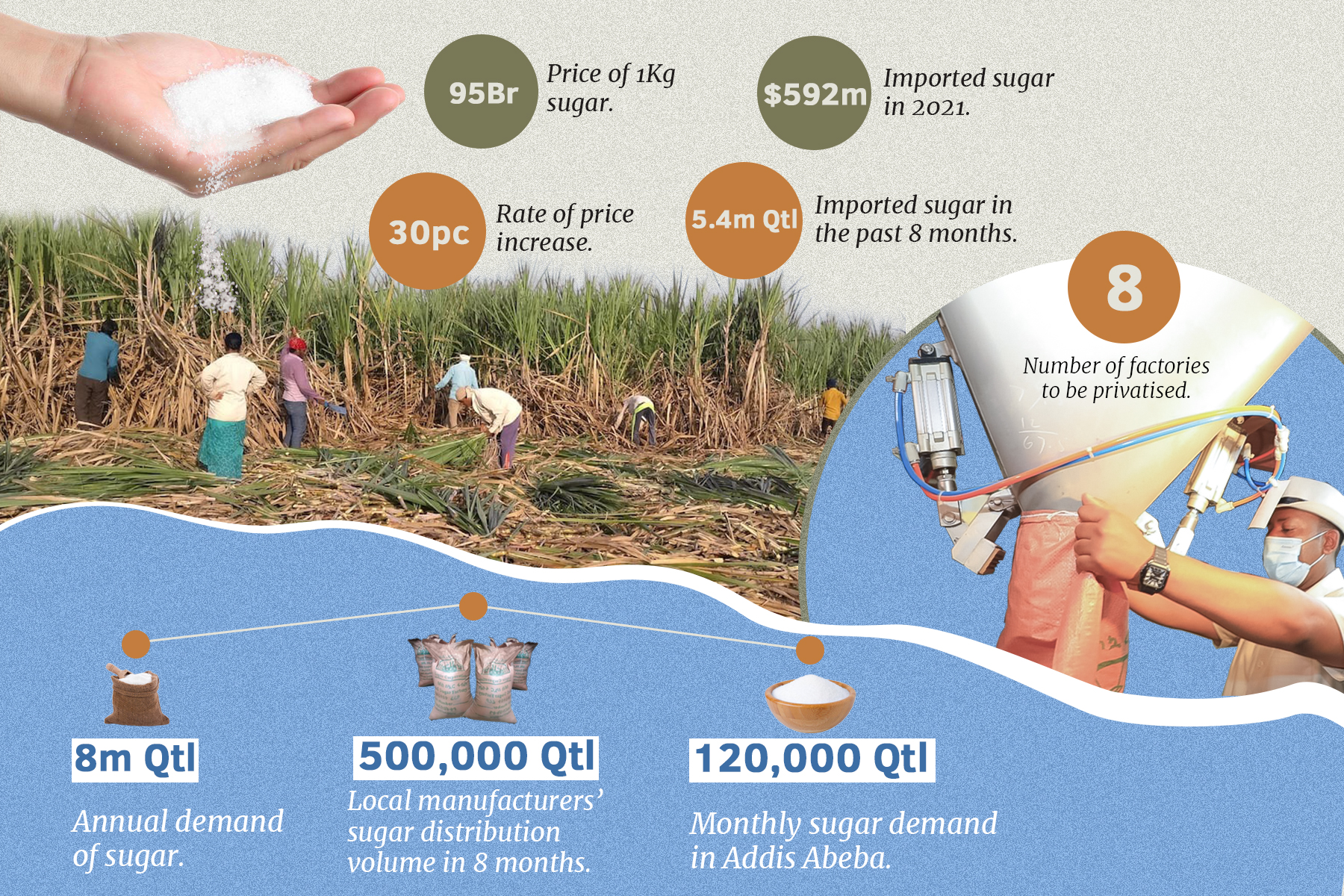
Fortune News | Oct 03,2020
May 28 , 2022
By Bjorn Lomborg
Showing where each Birr does the most good means that the politicians and their officials can pick more of the really effective programmes, and slightly fewer of the less so, with additional data from economic science, writes Bjorn Lomborg (PhD), president of the Copenhagen Consensus and visiting fellow at Stanford University's Hoover Institution.
Despite having a substantial public budget, Ethiopia does not have enough funds to do everything its citizens would like. In that respect, Ethiopia is no different from any other country, rich or poor: it has to prioritise between many worthy opportunities.
In every country, the main role of the government and parliament is to prioritise policy options and investments. Hopefully, these policies will be the ones that deliver the greatest benefit for each Birr spent. These could be enormously influential investments in health, such as rotavirus vaccinations, or in education, such as structured teacher plans.
However, as everywhere else in the world, policies are often driven by other considerations that can dramatically reduce effectiveness. This could be driven by special interest groups and vocal minorities highlighting their preferred options. For instance, fertiliser subsidies definitely help the individual farmer, but overall, such a policy delivers only small returns for society. And media will often push exciting interventions, even if their returns are dubious. For instance, giving each child a cheap laptop was long seen as an exciting and crucial pathway to educating children in the 21st century. Now, some studies show that not only is this an expensive option, but also one that delivers zero benefits — actually, the children possibly become slightly less attentive.
Data and economic science can provide a handy input to help the government and citizens cut through the noise from interest groups and assist with allocating resources to improve the budgeting process.
Cost-benefit analysis – an approach that uses rigorous, cross-sectoral economic analysis to establish what could be achieved by spending additional money in different areas – is rarely used by any government in the world in a broad, transparent fashion. Why? It requires large numbers of academics, well-organised inputs and the collection of considerable data, and it creates analytical results that can upset some vested interest groups.
Projects under the Copenhagen Consensus Centre [of which the author is the president] have helped state and national governments zero in on the most powerful investments. In India, we collaborated with Tata Trusts, the nation's oldest philanthropy, while in Bangladesh we worked with BRAC, the world's biggest NGO. These local inputs make sure that the policies examined are the most relevant to each country.
Another project that could be transformative is being carried out for the Bill & Melinda Gates Foundation to investigate how nations can best spend resources within the conversation of the so-called Sustainable Development Goals.
What could such an investigation achieve for Ethiopia?
The country has huge opportunities ahead – but also challenges which could impact prosperity if not navigated carefully.
A rapid assessment for Uganda points to the types of research that could help Ethiopia. We worked with Uganda's National Planning Authority to examine each of the interventions suggested in the new Uganda Budget Strategy, undertaking a rapid assessment to quickly evaluate the costs and benefits of each initiative, based on the academic literature.
This report highlighted the vast benefits of opening schools unconditionally and keeping them open to improve future earnings for Ugandan children. The research also showed the huge benefits of prioritising healthcare spending on specific communicable diseases like malaria and tuberculosis. Among all the competing claims on the healthcare budget, there is enormous value in focusing additional resources on these areas where relatively tiny investments can generate vast results.
It also showed areas that should not be prioritised, such as software skills development training, which sounds sensible and often attracts attention but typically has low returns, given the vast global competition in this area.
The Uganda research pointed to the potential benefits of region-wide policies such as reducing non-tariff barriers across Africa, which could boost GDP across the region by 2.2pc or 5.2 billion dollars.
Showing where each Birr does the most good does not offer the last word in budgetary decision-making. Nor does it supplant politicians. It merely ensures that citizens and politicians are better informed. Decisions on how to allocate scarce resources should always remain the domain of elected politicians.
But this input means that the politicians and their officials can pick more of the really effective programs and slightly fewer of the less so, with additional data from economic science. Uganda's National Planning Authority Executive Director Joseph Muvawala said that the Copenhagen Consensus report would be "core in guiding Government in the reprioritisation" of actions for its next National Development Plan.
Ethiopia should consider embracing the same opportunity. Ethiopian and international academics should be brought together to map out what really works and highlight where the next Birr can be spent best.
PUBLISHED ON
May 28,2022 [ VOL
23 , NO
1152]


Fortune News | Oct 03,2020

Fortune News | May 09,2020

Viewpoints | Jun 21,2025

Radar | Nov 23,2019

View From Arada | Jul 22,2023

Fortune News | Apr 06,2024

Radar | Feb 11,2023

Radar | May 23,2021

Viewpoints | Aug 03,2024

Commentaries | Jun 08,2024

Photo Gallery | 178460 Views | May 06,2019

Photo Gallery | 168658 Views | Apr 26,2019

Photo Gallery | 159463 Views | Oct 06,2021

My Opinion | 137076 Views | Aug 14,2021
Commentaries | Oct 25,2025

Dec 22 , 2024 . By TIZITA SHEWAFERAW
Charged with transforming colossal state-owned enterprises into modern and competitiv...

Aug 18 , 2024 . By AKSAH ITALO
Although predictable Yonas Zerihun's job in the ride-hailing service is not immune to...

Jul 28 , 2024 . By TIZITA SHEWAFERAW
Unhabitual, perhaps too many, Samuel Gebreyohannes, 38, used to occasionally enjoy a couple of beers at breakfast. However, he recently swit...

Jul 13 , 2024 . By AKSAH ITALO
Investors who rely on tractors, trucks, and field vehicles for commuting, transporting commodities, and f...

Oct 25 , 2025
The regulatory machinery is on overdrive. In only two years, no fewer than 35 new pro...

Oct 18 , 2025
The political establishment, notably the ruling party and its top brass, has become p...

Oct 11 , 2025
Ladislas Farago, a roving Associated Press (AP) correspondent, arrived in Ethiopia in...

Oct 4 , 2025
Eyob Tekalegn (PhD) had been in the Governor's chair for only weeks when, on Septembe...

Oct 25 , 2025 . By YITBAREK GETACHEW
Officials of the Addis Abeba's Education Bureau have embarked on an ambitious experim...

Oct 26 , 2025 . By YITBAREK GETACHEW
The federal government is making a landmark shift in its investment incentive regime...

Oct 29 , 2025 . By NAHOM AYELE
The National Bank of Ethiopia (NBE) is preparing to issue a directive that will funda...

Oct 26 , 2025 . By SURAFEL MULUGETA
A community of booksellers shadowing the Ethiopian National Theatre has been jolted b...